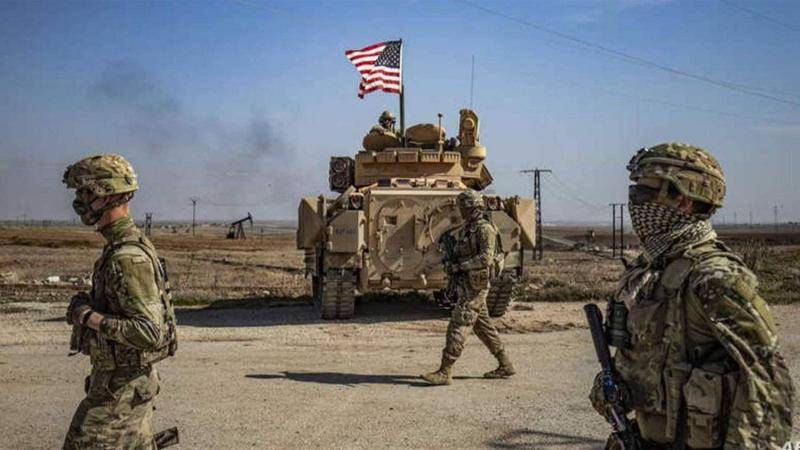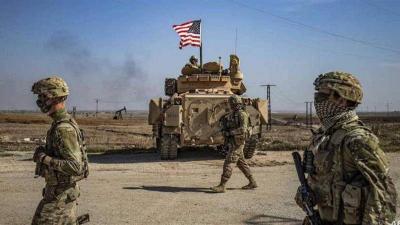Several Iranian and Iraqi sources told Reuters that a visit by Ismail Qaani, commander of the Iranian Quds Force, to Baghdad led to a cessation of attacks by Iran-aligned factions in Iraq against U.S. forces, indicating Tehran's desire to prevent a broader conflict. The sources reported that Qaani met with representatives from various armed factions at Baghdad Airport on January 29, less than 48 hours after Washington accused these factions of being behind the deaths of three U.S. soldiers at the Tower 22 military site in Jordan.
Ten sources pointed out that Qaani, whose predecessor was killed in a U.S. drone strike near the same airport four years ago, warned the factions that American bloodshed risked a violent U.S. response. The sources added that Qaani informed the armed factions that they needed to step back to avoid U.S. strikes on senior leaders or the destruction of their critical infrastructure, or even direct retaliation against Iran.
One faction initially did not agree to Qaani's request, but most others complied. The next day, the Iran-aligned Kata'ib Hezbollah group announced it would suspend its attacks. Since February 4, there have been no attacks on U.S. forces in Iraq and Syria, compared to more than 20 attacks in the two weeks prior to Qaani's visit, part of a wave of violence from the factions in response to the Israeli war in the Palestinian Gaza Strip.
A senior leader from one of the Iranian-aligned Iraqi factions stated, "Without Qaani's direct intervention, it would have been impossible to convince Kata'ib Hezbollah to stop its military operations to de-escalate tensions." Neither Qaani nor the Quds Force, which operates with allied armed factions from Lebanon to Yemen, has yet responded to requests for comments. Kata'ib Hezbollah and another faction could not be reached for comment. The White House and the U.S. Department of Defense also did not respond.
Iraqi media noted Qaani's visit, but reports did not provide details of his message or its impact on reducing attacks previously. Reuters discussed this matter with three Iranian officials, a senior Iraqi security official, three Iraqi Shiite politicians, and four sources from Iranian-aligned Iraqi armed factions, as well as four diplomats focused on Iraqi affairs.
The clear success of Qaani's visit highlights Iran's influence over the Iraqi armed factions, which at times work to increase pressure and at other times to de-escalate tensions to serve their goal of expelling U.S. forces from Iraq. Five sources reported that the Baghdad government, a rare joint ally for both Tehran and Washington, is trying to prevent the country from becoming a battleground for foreign powers again and has sought Iran's assistance in restraining the factions after the attack in Jordan.
Farhad Alaeddin, an advisor to Iraqi Prime Minister Muhammad Shia al-Sudani on foreign affairs, told Reuters in response to a question about confirming Qaani's visit and the request for help in restraining the armed factions that Sudani "worked with all concerned parties inside and outside Iraq, warning" that escalation "would destabilize Iraq and the region."
A Shiite politician from the ruling coalition stated, "The attack came in a way that served the interests of the Iraqi government." Several other Iranian-aligned parties and armed factions in Iraq prefer negotiations over strikes to end the U.S. military presence. Washington has been unwilling to negotiate changes to its military posture amid attacks, fearing it would embolden Iran.
The U.S. currently has around 2,500 troops in Iraq and 900 soldiers in Syria on a mission to provide advisory and assistance support. These troops are part of an international coalition deployed in 2014 to fight the militant group "ISIS," especially in western Iraq and eastern Syria. A spokesman for the U.S. State Department stated that the U.S. presence in Iraq would evolve into a "permanent bilateral security relationship," and declined to comment on Qaani's visit to Baghdad.
The United States insists that Tehran has a high level of control over what it calls Iran's "proxies" in the region. Tehran claims it has provided funding, advice, and training to its allies, but they decide their operations independently. Another U.S. official acknowledged Iran's role in reducing attacks but said it is unclear whether the calm will continue. Another senior U.S. official stated, "We need to see more effort on the ground" from Iraq to control the factions, pointing to the limited arrests made following a December mortar attack on the U.S. embassy in Baghdad.
### Airport Security
The senior Iraqi security source noted that as Iran prepared for an American response to the attack in Jordan, Qaani's visit was brief as he did not leave the airport "for strict security reasons and concerns for his safety." Following the strike that killed former Quds Force commander Qassem Soleimani in 2020 outside the airport, an attack was also attributed to Kata'ib Hezbollah, which resulted in the death of an American contractor and raised concerns about the outbreak of regional war at the time. Alongside Soleimani, the strike also killed the former leader of Kata'ib Hezbollah, Abu Mahdi al-Muhandis.
Nine sources indicated that both Tehran and Baghdad want to avoid a similar escalation this time. The senior Iraqi security source stated, "The Iranians learned their lesson from the assassination of Soleimani and do not want to repeat it." An Iranian security official asserted, "Qaani's visit was successful but not entirely so, as not all Iraqi groups agreed to de-escalate." The al-Nujaba Movement, a small but very active group, stated it would continue attacks, indicating that U.S. forces would never leave without force.
It is unclear how long the ceasefire will last. A group that encompasses several armed factions threatened to resume operations following the U.S. killing of a senior Kata'ib Hezbollah leader, Abu Baqr al-Saadi, in Baghdad on February 7. Al-Saadi was also a member of the Popular Mobilization Forces, a mainly Shiite armed faction in Iraq allied with Iran that fought ISIS, highlighting the depth of integration between Iran-aligned armed factions and the Iraqi state.
U.S.-led forces invaded Iraq in 2003, toppling Saddam Hussein before withdrawing from Iraq in 2011. However, Shiite armed factions that spent years attacking U.S. forces following the American invasion in 2003 fought on the same front against ISIS, but without direct partnership with U.S. troops until ISIS was defeated in Iraq. In subsequent years, rounds of mutual fighting intensified between the remnants of U.S. forces in Iraq until the deaths of Soleimani and al-Muhandis. The deaths of the two men led the Iraqi parliament to vote in favor of foreign troop withdrawal from Iraq. Government officials stated that Sudani's government came to power based on a commitment to implement this decision, although it was not considered a priority.
However, the situation changed again with the onset of the war in Gaza. Dozens of attacks and multiple U.S. responses, including the killing of a senior al-Nujaba leader in Baghdad, prompted declarations that the coalition had become a factor of instability in the region and initiated talks to end its presence in Iraq. However, it kept the door open for continued U.S. presence but in a different format through a bilateral agreement. Iraqi officials expressed hope that the current calm could persist until the anticipated lengthy talks yield results. A senior Kata'ib Hezbollah official and leader of the Popular Mobilization Forces, Abdul Aziz al-Muhandis, vowed during al-Saadi's funeral that there would be a response to the recent killing but did not announce a return to violence. He stated that the response would be based on consensus, including with the government.
He said, "The revenge for martyr Abu Baqr al-Saadi will be the expulsion of all foreign forces from Iraq. We will accept nothing less than that."




